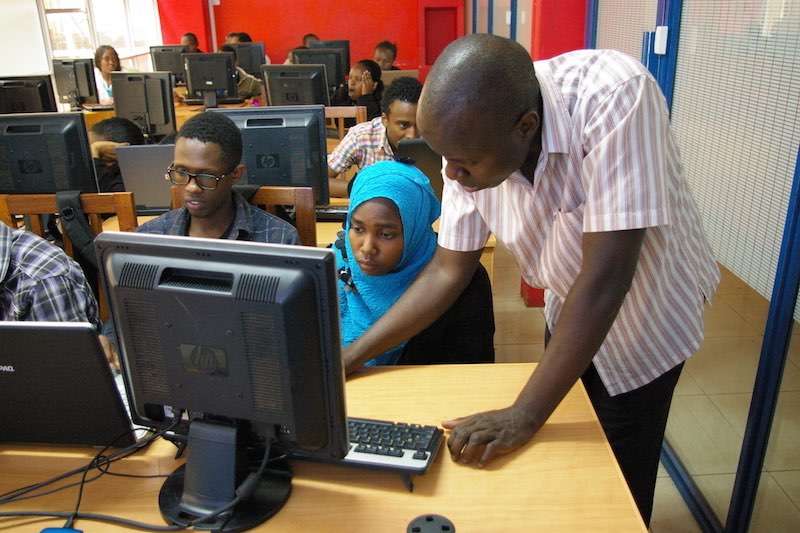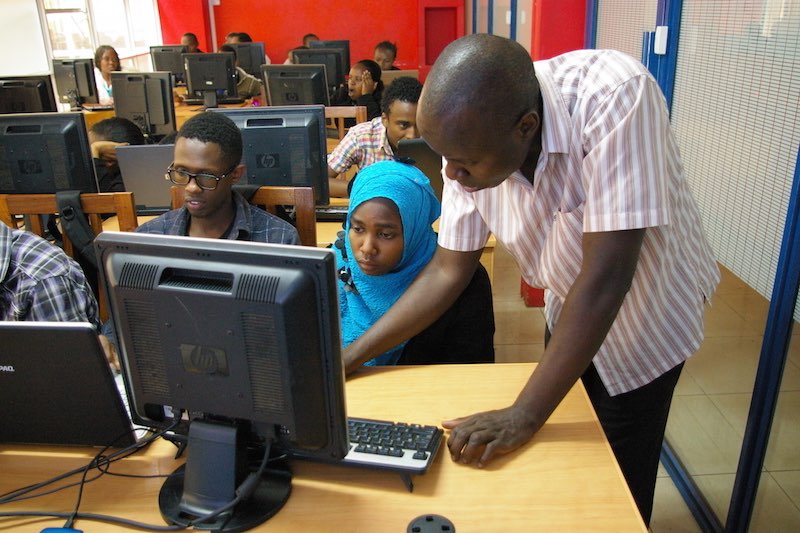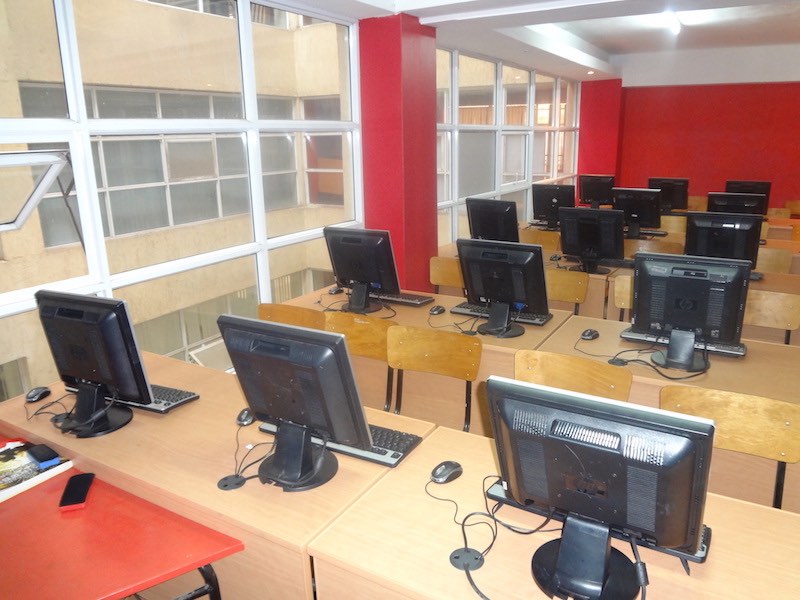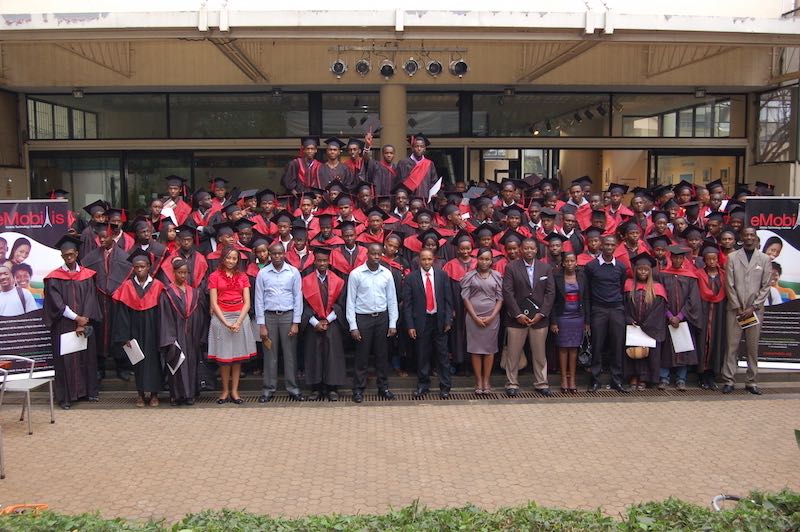African Tech Hubs: eMobilis in Nairobi, Kenya
 African tech hubs and innovations labs train the next generation of African leaders and entrepreneurs who will use technology to solve challenges faced by their countries and communities.
African tech hubs and innovations labs train the next generation of African leaders and entrepreneurs who will use technology to solve challenges faced by their countries and communities.
In order to help bridge their work and make connections between African tech leaders and Silicon Valley, where we spend the summer teaching at Singularity University’s Graduate Studies Program, we’re profiling a handful of African tech hubs and innovations labs.
In this ongoing series at Code Innovation, we’ll be asking tech leaders from across Africa how they work, what their business model looks like, what challenges they face and how those with capital and resources can support them.
Our intention is to encourage connections and collaboration between the African tech scene and Silicon Valley.
In our first interview in the African Tech Hubs series, we’re profiling Ken Mwenda, co-founder and Managing Director of eMobilis Technology Institute, based in Nairobi, Kenya.
Code: Hi Ken. Welcome to our interview series! Would you share a little bit about who you are and how you got started in technology?
Ken Mwenda: Hi. I’d be happy to. eMobilis is a software development training institution and incubation hub based in Nairobi, Kenya that has been in operation for the past five years.
We train youth and develop custom mobile applications for organizations both locally and globally – everything from e-learning mobile apps to business apps designed to streamline operations.
Our organization was founded at a time when Safaricom, the creator of Mpesa, overtook East African Breweries as the most profitable company in East Africa. That, and the entry of four new telecom companies into Kenya, marked the advent of a boom in the telecommunications sector and the dire need for more talent to avoid the rampant poaching of network engineers and mobile product developers.
When we opened our doors to students, we were the first of our kind in sub-Saharan Africa. It was necessary to pioneer this kind of training to respond to digital opportunities in a focused way, as no other colleges or universities were doing so at the time. From courses on network infrastructure, GSM, the evolution of 3G and radio propagation, we then progressed to launch programs on Java, PHP, mySQL, HTML5, Android and Windows Phone. As the industry evolved, it become clear that there were also phenomenal freelance and entrepreneurship opportunities presented in the exploding mobile software development space, as a result of global app stores and the low barriers of entry for developers with a globally appealing software product.
eMobilis is accredited through the Government of Kenya and has trained over 2,200 students to date, 65% of these on scholarships funded through industry collaborations.
Our vision is to empower local youth to tap into the myriad opportunities that the mobile and software development industry offers so that they can innovate, create and improve their situation in life through use of digital tools.
Code: How did your organization get founded and how is it being run now?
Ken: eMobilis was founded by 3 directors who pooled together capital and resources from personal savings. We set up in an area known as Westlands within Nairobi’s core and now have 3 fully-equipped labs and an incubation room. Each of the three labs has a capacity of 30 students at any given time and part of our commitment to students is to offer high-speed internet, high performance PC’s and a conducive environment for learning that includes test devices and a test server.
It took us one and a half years to get government accreditation through the local Ministry of Education, Science and Technology. This rigorous process vetted our teaching staff, and included inspecting our premises and also scrutinizing the curriculum.
Typical courses run between 1 month and 3 months and all require creation of a mobile app as part of the hands-on methodology. We expose students to the publishing process and give them some ideas on how to monetize their skills.
We also offer off-site Boot Camps and have partnered with top universities in Kenya to conduct certain trainings at their campuses. Over the years, we have worked with the University of Nairobi, JKUAT and Africa Nazarene to train their students in mobile programming.
eMobilis has been engaged by both Google and Microsoft (Nokia) to conduct specialized training programs. In the case of Google, it involved a series of workshops to assist small and medium sized businesses to set up their own websites using the GKBO (Getting Kenyan Businesses Online) tool.
Our software development division is 2 years old and sprung from the numerous requests we were getting from companies that wanted a specific, custom mobile app created and the whole project managed by a vendor. Having expertise and a reasonable amount of experience and accumulated research on mobile apps, we ventured into creating apps for companies on contract.
Code: What is your business model?
Ken: Our business model is multi-pronged. We run some programs where students pay full tuition while other programs are on full scholarship.
For instance, in the mlab East Africa program, where the mandate was to grow and develop the mobile technology ecosystem, the best and brightest students were shortlisted competitively and given full scholarships for a 4-month training program. Many have gone on to form start-ups, some work on a freelance basis and another 60% have been absorbed into employment by banks, IT companies, small businesses and multinationals, typically in their IT departments. Funding from Infodev, a division of the World Bank, enabled us to offer full, merit based scholarships at the mlab facility with our lecturers and curriculum.
eMobilis is also a co-founder of mlab East Africa, a World Bank initiative consisting of 5 regional mobile laboratories around the world tasked with incubating start-ups, hosting a major developer pitching conference, training, mentoring start-ups and supporting the growth of the mobile tech ecosystem. The consortium hosting the lab consists of iHub, University of Nairobi and eMobilis.
We seek out partnerships with corporations to offer custom tailored programs. One such partnership was with Nokia before they were bought out by Microsoft. Their goal was to promote local content on their devices through relevant and exciting mobile applications that helped them sell more phones. Nokia would fully fund a program for students that helped up-skill and expose strong developers who create useful and appealing mobile applications.
We have partnered with organizations such as Google, Microsoft, Safaricom, Salesforce and KEMRI to offer youth trainings on Android, website development through HTML5, Windows Phone and USSD mobile software development programs.
On the software development division, we have worked with different international organizations including Code Innovation and One Hen Inc. to develop a ground-breaking, multilingual mobile app that enables facilitators of Self Help Groups in Ethiopia and Tanzania to effectively learn and manage groups through mobile tools, resources and the app’s user-friendly interface.
Our model is also to seek out partnerships to create amazing apps for private as well as for non-profit organizations that want to leverage the power of mobile and to extend their reach and effectiveness with their customers or constituents.
Code: Do you work in open source? What is your experience with the open source community?
Ken: We do. When we run programs on Android, HTML5, and others we build on curriculum and resources openly available through the open source community. We also direct our students to developer forums and communities so that they can contribute and also further their research as they code.
We consider the open source community an amazing place to share ideas and learn best practices from each other.
Code: What has been most challenging?
Ken: There are numerous challenges, many of them that come with the territory when you decide to pioneer a concept as novel as mobile software development training in Africa. Code schools and academies are still fairly uncommon. In the early days there was very low awareness on this area of training. Traditional education and institutions did not teach mobile software development and so we had to spend heavily on marketing and awareness building so that potential students could get excited about the opportunities afforded by the mobile space and how they could learn through us.
As a start-up, we had cash flow issues and lack of bank financing as software related businesses in Kenya typically do not qualify for bank loans and are considered high risk. Expenses spanning rent, salaries, quality equipment and marketing proved quite high as we raced to ramp up and attract solid student numbers to cover operating costs.
Being in the Education sector, we also needed to get accredited by the Government and that took a great deal of time and effort to help the Quality Assurance department at the Ministry of Education, Science and Technology understand our curriculum, process and the outcomes of the training. This was long and rigorous but important to us since as an organization, we wanted to be compliant and to be able to assure parents and students about the quality and value of what we offer.
Additionally, there was the challenge of both finding highly qualified and passionate lecturers who understood this relatively new field, had developed their own apps and could communicate effectively to train students and motivate them as developers.
Another challenge to contend with is adapting to the rapidly changing technology landscape where technology companies fold, new programming languages emerge, standards compete, equipment becomes obsolete and staying on top of all this to remain relevant is not entirely painless.
Code: What are your organization’s specific areas of expertise?
Ken: Software development training – Android, Salesforce, HTML5 and so forth, youth capacity building, and mobile software development for private firms and non-profits.
Code: What are the issues or problems that you care most about?
Ken: Solving the unacceptably high rate of unemployment in Kenya, which stands at 40%; ensuring that globalization does not leave our youth behind as the world rapidly goes digital and we lose out on opportunities for work; facilitating creativity and unleashing the potential of our youth to innovate; establishing Kenya as a hub of excellence for software development globally and to ensure we train top-notch talent; building the tech ecosystem, including attracting venture capitalists to invest in African start-ups to solve the funding issue and to provide mentorship; and growing as an organization and escalating our impact.
Code: What projects are you most excited to be working on?
Ken: Mobile software development projects with partners who can pilot, who have the reach and ability to roll out our mobile apps across Africa and have the desire to collaborate with us to iterate and grow together on various projects with proven social impact potential.
Code: What are your plans for the next few years and what sort of help do you need to achieve them?
Ken: To open 4 more centers with fully equipped labs across Kenya, form 10 key partnerships with mobile value added services companies, hire 2 dedicated staff for business development and to secure software projects, expand the range of programs and courses that we offer as technology evolves, work on 8 innovative and meaningful mobile app projects by Dec 2016, secure a $70,000 grant to allow us to offer scholarships to approximately 100 bright youth from East Africa over the next 12 months, and hire for an Alumni and Jobs Manager to strengthen our job placement office.
Code: What companies or organizations would do you most like to be connected to and why?
Ken: We would like to be connected to organizations that fund scholarships and those that want to outsource software development work and are willing to form a partnership either for knowledge transfer or collaborative social impact projects. We would also like to connect to Singularity, Stanford and MIT for exchange programs and teaching partnerships.
Code: This has been great, Ken. Thanks for the interview! How can people get in touch with you?
Ken: Karibu! They can visit our website, like us on Facebook, follow us on Twitter, or get in touch with me directly by email at ken@emobilis.org.



